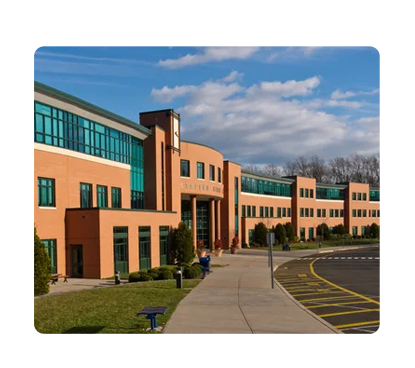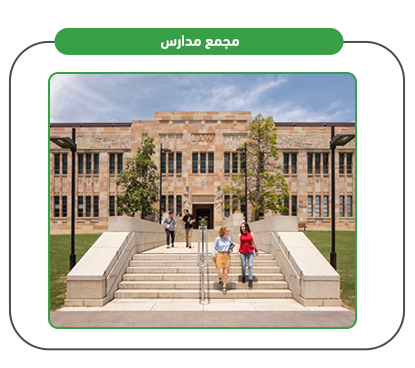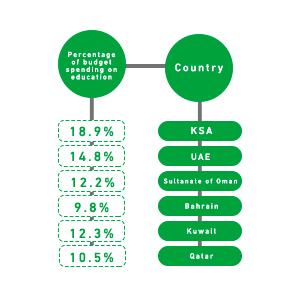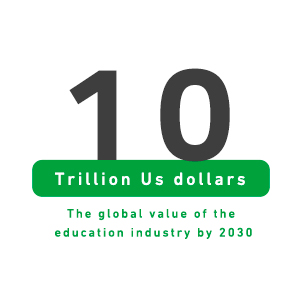The Schools Complex Project is a pioneering educational vision that aims to provide a comprehensive environment that integrates academic excellence with the personal growth of students. The complex includes a group of modern schools designed to the highest standards, equipped with the latest technologies and advanced infrastructure, to meet the needs of future generations. The project includes smart classrooms, advanced science laboratories, libraries rich with educational resources, as well as green spaces and gardens designed to enhance the educational experience and foster creativity. The complex focuses on extracurricular activities, including sports, arts, and innovation, by providing multi-use sports facilities and a theater dedicated to artistic performances. The project aims to develop students’ skills in academic and social aspects, while enhancing their abilities to think critically and creatively. The Schools Complex Project features an advanced security system to ensure the safety of students around the clock, enhancing the confidence and comfort of parents. Furthermore, the project places great importance on family-school collaboration, with periodic workshops and orientation programs organized for parents to achieve integration between education and upbringing in a safe and inclusive environment that meets everyone’s aspirations.

The Schools Complex Project represents an innovative model for developing the education system, aiming to provide an integrated learning environment that meets future requirements. The complex focuses on providing a comprehensive educational experience by integrating the latest technologies into the educational process, contributing to enhancing positive interaction between teachers and students. The project includes innovative classroom spaces designed to stimulate creativity and promote interactive learning, as well as classrooms equipped with advanced digital technologies that support improved student comprehension and understanding. The complex also includes advanced sports facilities and spaces dedicated to artistic and creative activities, achieving a balance between academic education and physical and artistic development. The project works to develop students’ cooperation and teamwork skills, contributing to enhancing their social and leadership capabilities. Furthermore, the Schools Complex Project offers integrated support services, including educational and psychological counseling, with the aim of creating a supportive environment for students. All these components complement each other to provide a pioneering educational experience focused on building students’ personalities and developing their skills to face future challenges with confidence and excellence.

Smart classrooms equipped with modern technologies.
Advanced science laboratories.
Libraries rich in educational resources.
Green spaces and educational gardens.
Multi-purpose sports facilities.
A theater and halls for artistic and creative performances.
Extracurricular activities that enhance students’ mental and psychological health.
A sophisticated security system to ensure student safety.
Workshops and orientation programs for parents.
Educational and psychological counseling to support students.


An integrated and innovative educational environment.
Using the latest educational technologies.
Advanced sports and arts facilities.
Promoting creative and critical thinking among students.
Supporting extracurricular activities to develop personal skills.
A comprehensive security system to protect students.
Enhancing family-school cooperation.
Educational and psychological support services.
Modern designs that adhere to sustainability standards.
A stimulating environment for developing social and leadership skills.
Executive Summary
Study of project services/products
Market Size Study
Risk study

The Education Sector in the GCC Countries
Because Mashroo3k Economic Consulting and Market Research believes in the importance of the education sector and its role in localizing the national workforce, it has decided to present the following key indicators of the education sector in the GCC countries, calling for investment in this important sector:
The total number of students in early childhood development (including nurseries and kindergartens) in the GCC countries, according to the latest available statistics, reached 851,500 students.
The number of students in school levels in the GCC countries was estimated at approximately 9.3 million students (79.4% in the public sector and 20.6% in the private sector).
The number of students in adult education centers was estimated at approximately 181,247 students.
The number of higher education students was estimated at 2,206,446 students.
The number of early childhood teachers was estimated at 50,647.
The number of school teachers was estimated at approximately 727,904.
There are 5,806 existing early childhood education institutions.
There are 32,310 existing primary education institutions.
In recent years, governments in the Gulf Cooperation Council (GCC) countries have sought to bridge the gap between education and the labor market. They have adopted educational curricula that increase the share of vocational and technical education and encourage learning through modern media and technologies. In this context, we should not fail to point out the increased spending in these six countries on education and its quality, in order to graduate generations that meet the private sector’s workforce needs.
According to the latest statistics, Saudi Arabia spends 18.9% of its budget on education, the UAE spends 14.8% of its budget on education, the Sultanate of Oman spends 12.2% of its budget on education, Bahrain spends 9.8% of its budget on education, Kuwait spends 12.3% of its budget on education, and Qatar spends 10.5% of its budget on education. By 2023, the private education market in the GCC will reach $26.2 billion.
Global Education Sector
The global education services market was valued at approximately $2,882.52 billion by the end of 2021, and global experts expect the market to reach $3,191.79 billion by the end of 2022, achieving a compound annual growth rate (CAGR) of 10.7%. By 2026, the market will reach $4,623.90 billion, representing a CAGR of 9.7% over the forecast period.

By 2030, the global value of education as an industry will reach US$10 trillion.
By 2024, the value of online education worldwide will reach US$247.46 billion.
The AI education market will expand at a compound annual growth rate of 36% from 2022 to 2030.
In 2000, the number of students worldwide was approximately 657 million, and this number increased to 739 million in 2019.
In 2000, the number of secondary school students was approximately 452 million, and this number increased to 601 million in 2019.